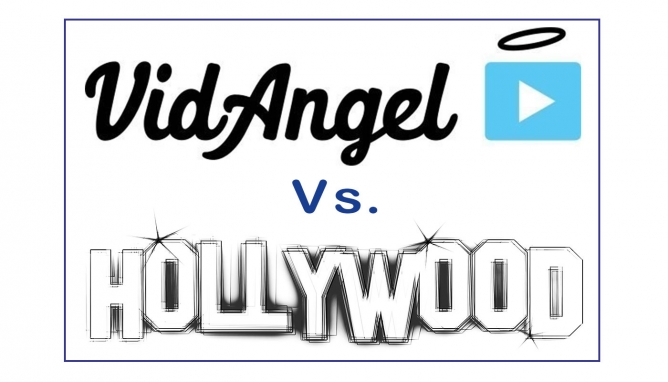VidAngel’s Ongoing Fight to Filter
UPDATE: On our January 14, 2017 Parent Previews Podcast we spoke with VidAngel CEO Neal Harmon about the current state of VidAngel’s ongoing legal challenge and plans for the future. Listen here!
It’s a legal battle has all the makings of a movie in itself. VidAngel, a small Utah start-up, simply wanted to help families filter objectionable content from mainstream movies. The original idea was to create a service where you rent movies, similar to iTunes or Google Play offers. The added bonus was being able to “clean up” the film in a customized manner according to your own parental priorities.
But the major Hollywood studios haven’t been supportive of the idea of giving parents the opportunity to remove profanities, sex and violence with a few clicks of a remote control. On the other side of the court, the studios see big issues with a business model that requires the encryption locks of DVDs and Blu-ray discs to be broken so that content can be streamed to viewers. Then there’s the complexities of a voluntary but still effective agreement between the Directors’ Guild of America and any company that hires a guild member (of which virtually every director of every mainstream movie is) that prevents studios and distributors from modifying a film without permission of the director. Obviously cutting out profanities, sexual content and violence would be a modification that would rankle most artistic creators.
Finally, what is possibly the most important aspect of this case, is a piece of legislation passed in 2005 called the Family Entertainment and Copyright Act (often abbreviated as The Family Movie Act). The act was a compromise for studios at the time that were looking for legislation to fine anyone caught recording a movie in a theater. The studios got what they wanted—a law that offers up to three years in prison for videoing a movie in a theater. In exchange the motion picture companies acquiesced to an exception within the Copyright Act that protects any companies and allows the creation of technologies to filter movies in real time with the purpose of removing possibly objectionable content. (At the time another Utah company, ClearPlay, was fighting a lawsuit with various Hollywood studios.)
Anticipating a reaction from the motion picture studios, VidAngel wrote to the major players during their initial operating months in the summer of 2015 and invited objections to their business model: “If you disagree with VidAngel’s belief that its technology fully complies with the Copyright Act or otherwise does not adequately protect the rights of copyright owners, please let us know.” According to the 60-page legal brief released by VidAngel in January 2017, they received no response other than one the studios signing up for a VidAngel account. Eleven months after VidAngel tried to contact the studios to get their opinion, they finally got a reply. In June 2016, the company received word of a lawsuit. After hearing the arguments, in December 2016 a federal judge issued an injunction against the company, forcing it to shut down its streaming operations.
VidAngel has been working hard to rally support for what it views as an assault on the Family Movie Act and it has literally paid off. Millions of dollars have been donated and invested into the company by legions of their loyal fans.
But what happens from here still isn’t clear. VidAngel has appealed the inunction and now the case is moving up through the legal system. Hopefully, in the end, the decision will open the path for VidAngel and other companies to offer streaming services that can finally take advantage of the legal protection provided to them over a decade ago.


